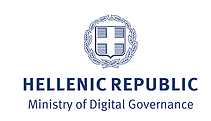Project Outline
The digital revolution enables governments to show citizens that they matter. This has been happening in Greece over the last three years and is commonly referred to as the Greek Digital Revolution. Globally, several governments (national and local) and institutions have taken this a step further by using the tools of the digital revolution to become more attuned to the needs and desires of various stakeholders, including citizens. There are a number of examples of such initiatives around the world, including Stanford University’s Center for Deliberative Democracy led by Prof. James Fishkin and the Ethelo municipal decision-making platform used in the U.S. and Canada, as well as Audrey Tang’s vTaiwan open consultation process — all of which aim to keep governments and institutions better informed, improve their relationships with the public and provide more transparency, all the while acknowledging the importance of stakeholders and their ideas.
The Democracy & Culture Foundation (DCF), in collaboration with the Berggruen Institute and the Greek Ministry of Digital Governance, is proceeding to enhance the significant progress and achievements of the past 30 months by piloting a digital citizens’ engagement process. There are many options for implementing this, including a participatory budgeting process, a deliberative poll and an online citizens’ convention. It should be noted that this is neither an experiment in direct democracy nor a form of referendum. Civic engagement is fostered through a carefully managed process, where participants have the opportunity to study the issues, learn from experts and express their opinions. It must also be noted that results and outcomes are not binding in any way; rather, they provide critical inputs for policymakers to assist them in reaching decisions.
The project’s scope
The Berggruen Institute, in partnership with DCF and the Ministry of Digital Governance, will work to delineate the best ways to establish a set of digital tools that will enable the Greek state to stay better attuned to the thinking, needs and aspirations of its citizens. By their nature, such tools are replicable. Accordingly, once they have been tested in Greece, they will become available to other countries, primarily in the Mediterranean region and the near-Global South, to be used by governments interested in promoting deliberative democracy processes in their own jurisdictions.
The partners will call upon experts to help determine the composition of the digital toolkit, depending on the nature of the question being asked. The process will provide the final “answer” and the partners will collaborate on the implementation and execution of the pilot program. The results of the “Democracy Catching Up With Technology” project conducted by the ministry and the DCF in the summer of 2021 will also be taken into account to maximize the impact of this initiative in relation to its connection to the Digital Toolkit project. In essence, the most significant policy recommendations that have emanated from the project will be subject to the scrutiny of citizens. While the “Democracy Catching Up With Technology” project took place in Greece, the issues explored — including the effects of open data and A.I., as well as 5G as an enabler of technology on democracy — are transnational and the policy recommendations reached are similarly applicable.
Digital Toolkit is with the participation of Hellenic Republic Ministry of Digital Governance and Berggruen Institute


Work with us
If you'd like to work or partner with us, please get in touch with a member of the team.
